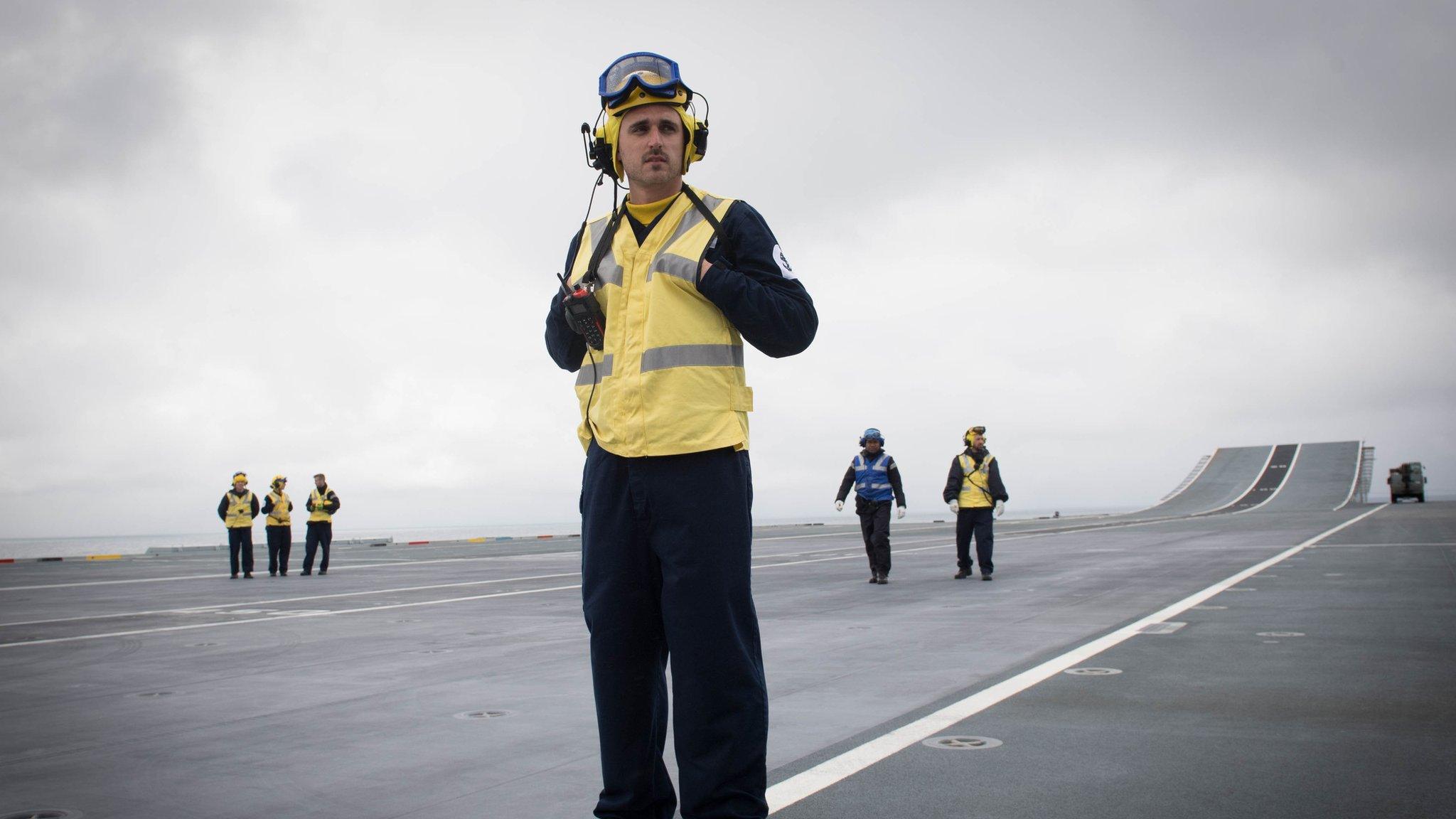HMS Queen Elizabeth: Carrier arrives in Portsmouth
- Published
The moment HMS Queen Elizabeth entered Portsmouth Harbour
The UK's new £3bn aircraft carrier has docked in its home port.
HMS Queen Elizabeth entered Portsmouth Harbour for the first time at about 07:10 BST following extensive preparations at the naval base.
The 65,000-tonne ship has been undergoing sea trials since setting sail from Rosyth dockyard in Fife, where it was built, in June.
The 900ft (280m) long carrier cannot currently deploy planes but flying trials are due to begin next year.
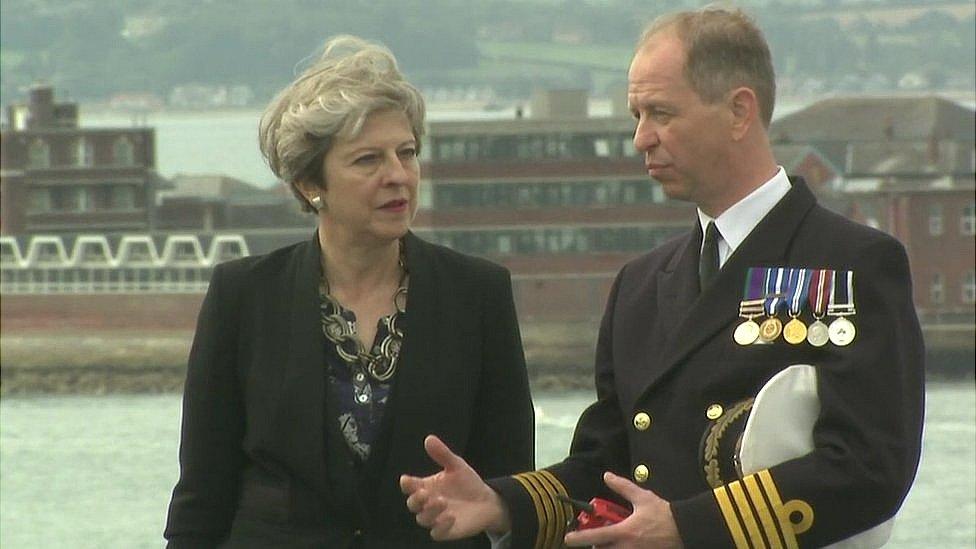
Prime Minister Theresa May met Capt Jerry Kyd while on board the carrier
Addressing crew members and contractors on the flight deck, Prime Minister Theresa May said the carrier was a "true testament to British ship building and design".
"Britain truly has the best sailors, marines and officers in the world. And I believe you deserve the very best equipment and that it what we have with HMS Queen Elizabeth," she said.
"This ship is the symbol of the United Kingdom as a great global maritime nation. Clearly she is a stunning piece of 21st Century engineering."
Live: New aircraft carrier HMS Queen Elizabeth arrives in home port
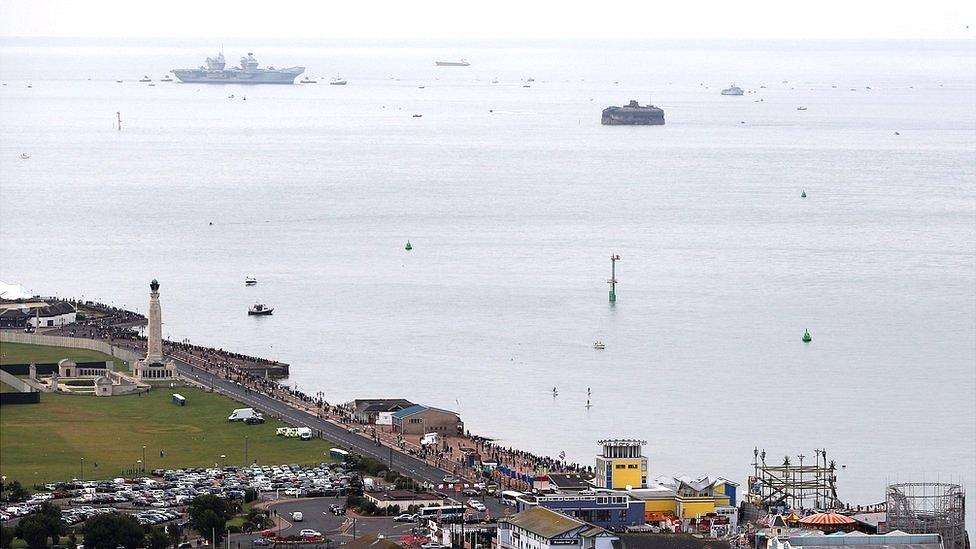
Crowds gathered on Southsea seafront for HMS Queen Elizabeth's arrival
Spectators who gathered on the shoreline to watch the ship's arrival saw flypasts of Royal Navy helicopters, the first featuring a Sea King, two MK2 Merlins and two MK3 Merlins which were then joined by two Hawk jets.
A flotilla of craft followed the behemoth aircraft carrier as she sailed into the Solent before heading into Portsmouth, where, at its narrowest point, there was less than 66ft (20m) clearance on each side.
An 820ft (250m) exclusion zone was enforced by armed police in small boats and a no-fly zone was put in place to prevent the flying of drones around the harbour.
The ship's available company stood at the edge of the vessel, with officers and family members also lining the jetty to welcome the ship.
Louise Bond, 30, from Fareham, whose husband, Petty Officer Greg Bond, 33, is serving on board, said: "It's my first homecoming, it's brilliant, I was up at 2.30am, first in line.
"It's amazing, I wouldn't miss it for the world."
Road closures, external were put in place in Old Portsmouth, Southsea seafront and parts of the city centre.
Isle of Wight, Gosport and cross-channel ferry services also altered timetables.
Preparations for the arrival of the future flagship of the fleet, and its 700 crew, saw more than 20,000 items ranging from a human skull to sea mines dredged up from Portsmouth Harbour.

The Ministry of Defence said specialist dredging vessels had removed 3.2 million cubic metres of sediment - the equivalent to 1,280 Olympic swimming pools - during the dredging operation carried out to deepen the harbour mouth to enable the Queen Elizabeth to reach Portsmouth naval base.
Speaking on board before the journey in to Portsmouth, Capt Jerry Kyd said he felt a "huge amount of pride" ahead of the vessel berthing in its home port.
"It sends the right signals to our allies and indeed potentially to our enemies that we mean business.
"The armed forces are fundamentally an insurance policy for the country and you can't just, at the flick of a switch, decide that you need these capabilities."
The ship has been undergoing sea trials off the Scottish coast and sailed with the USS George HW Bush and her carrier strike group, during Exercise Saxon Warrior earlier this month.
F-35B Lightning fighter jets are due to make their first trial flights from the carrier's deck next year with 120 aircrew currently training in the US.
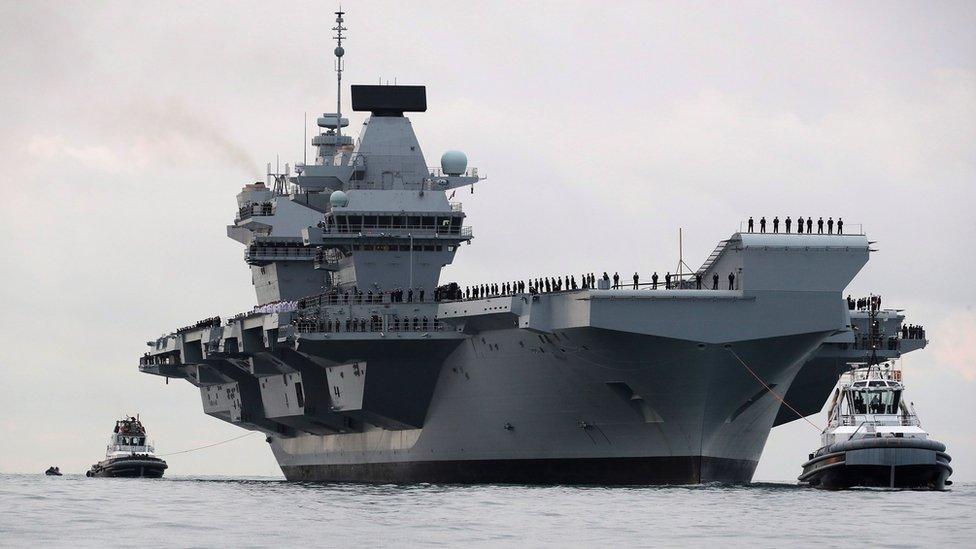
HMS Queen Elizabeth sailed into Portsmouth following extensive preparations at the naval base.

Analysis: Jonathan Beale, BBC News defence correspondent
HMS Queen Elizabeth is still far from being a fully functioning aircraft carrier. But she now looks and feels less of a giant construction project and more like a warship. For the last seven weeks she's been undergoing sea trials.
They've tested everything from the propulsion system to the sewage processing plant. The ship's five galleys have been churning out more than 3,000 meals a day for the 700 crew and additional contractors on board.
According to the captain, Jerry Kyd, the tests have gone "really well" for what he admits is a "prototype". But even he suggests that they'll need more manpower when she's fully operational. The slightly larger US Nimitz class carriers have a crew of more than 4,000.
HMS Queen Elizabeth's first deployment is still a long way off. Though helicopters have been landing on her massive deck - the size of three football pitches - it will be another year before the new F35s will begin flight trials. And HMS Queen Elizabeth won't be fully operational until 2023.

- Published16 August 2017
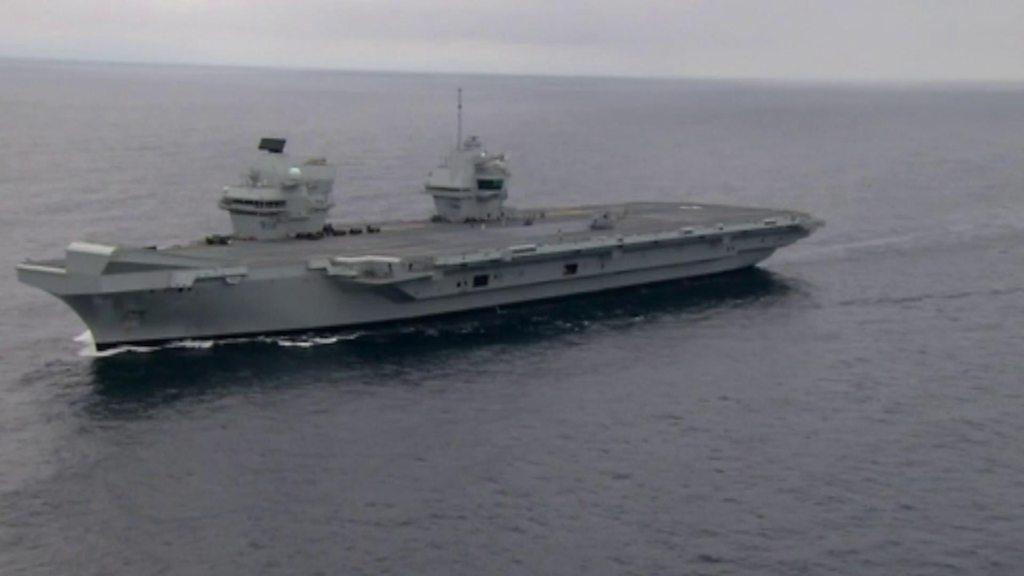
- Published15 August 2017
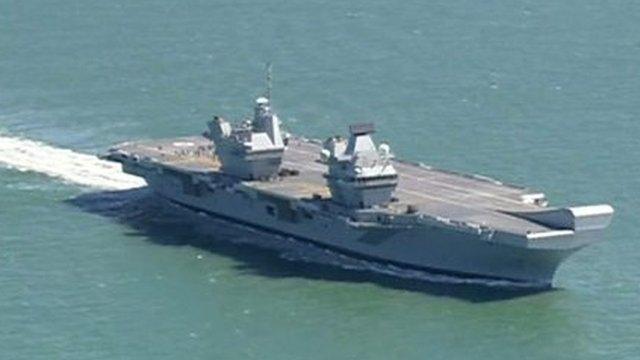
- Published10 August 2017
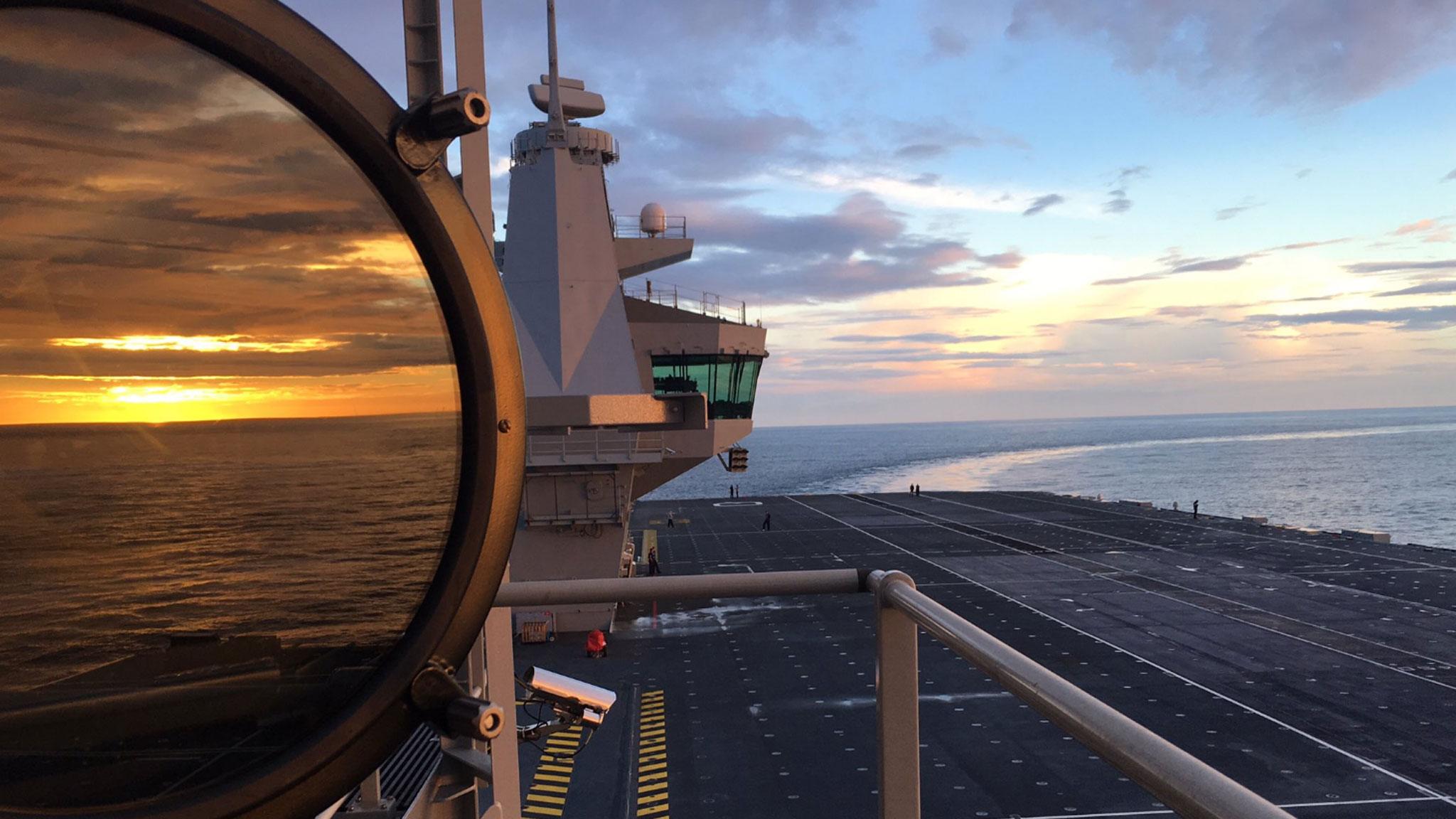
- Published7 August 2017
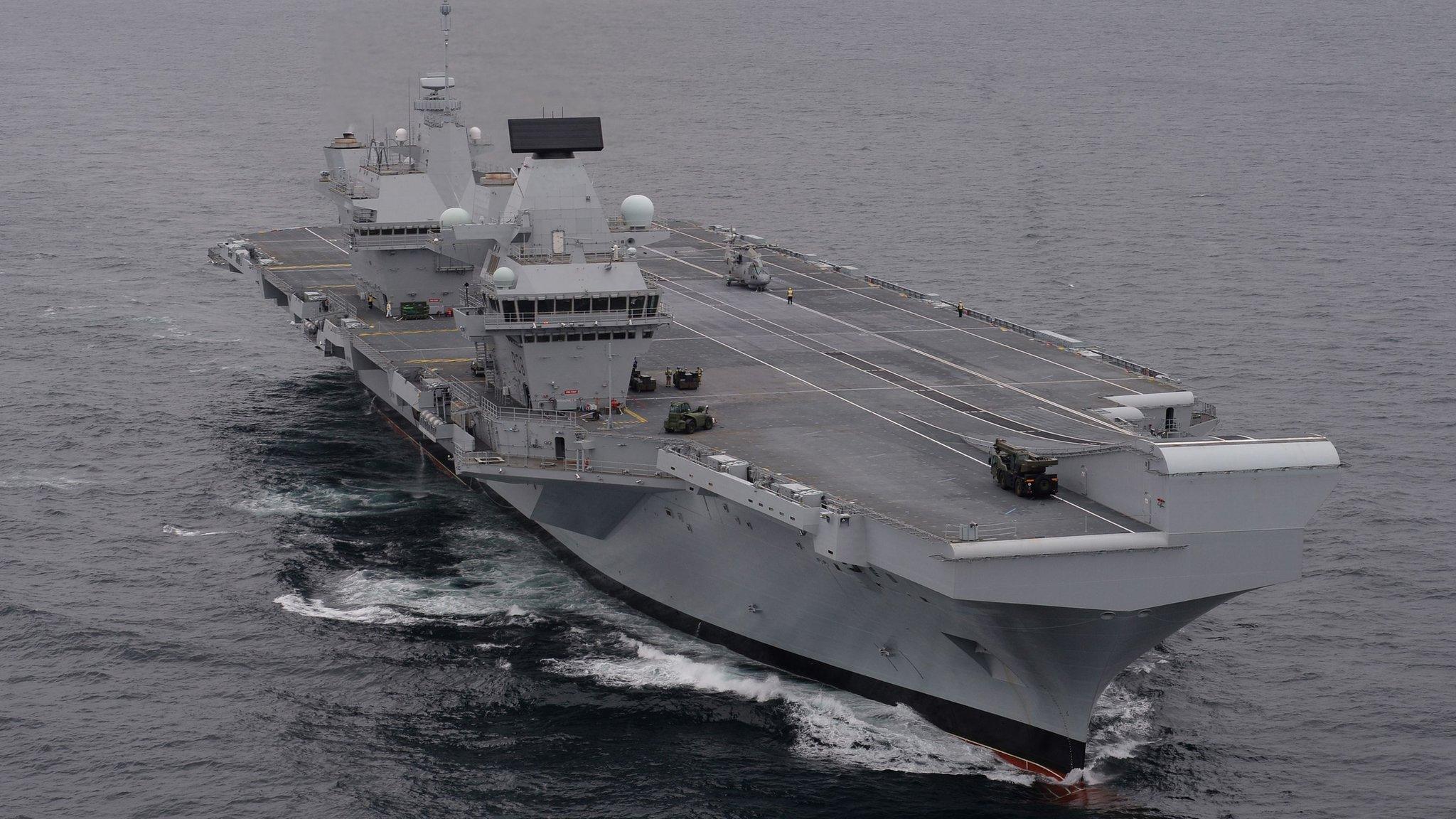
- Published1 August 2017
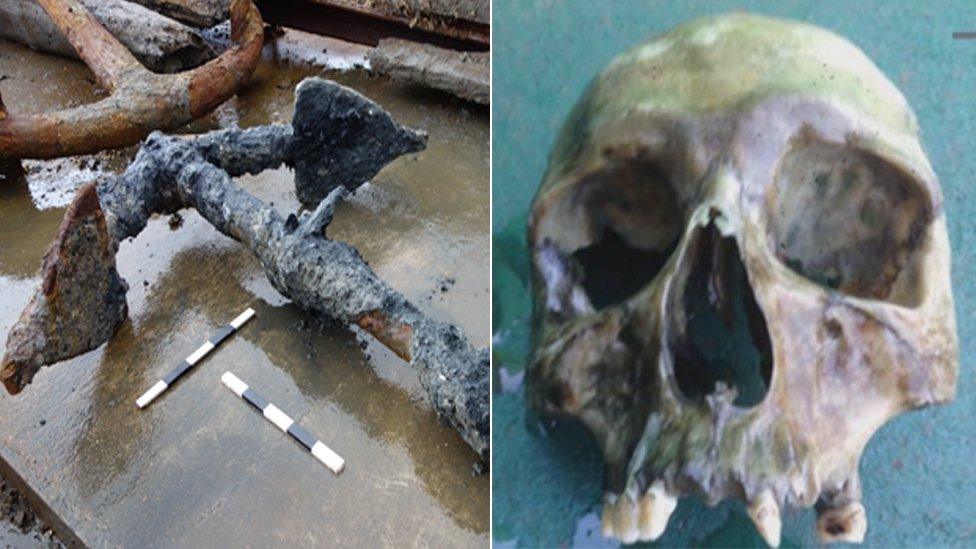
- Published1 August 2017
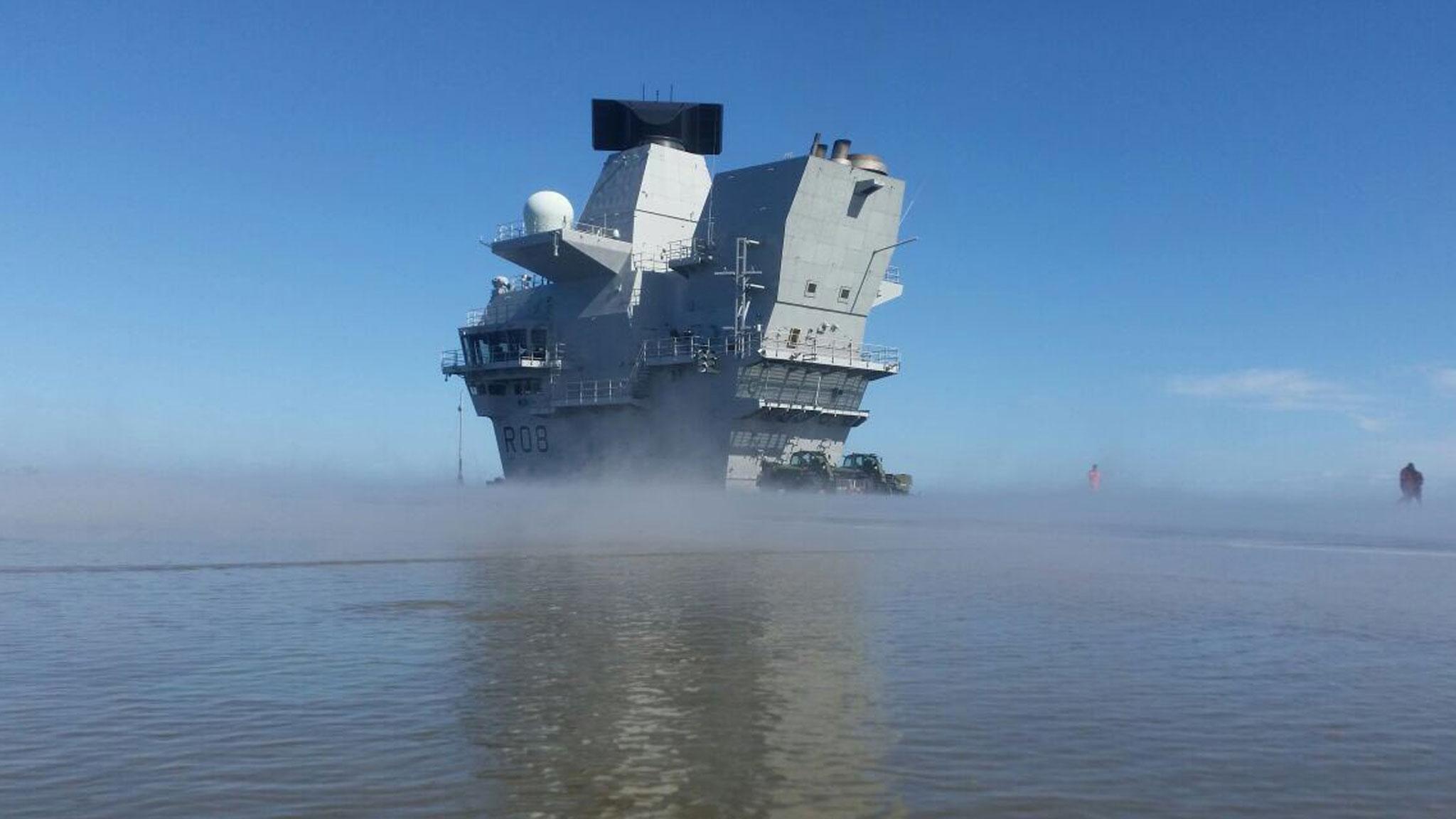
- Published26 June 2017
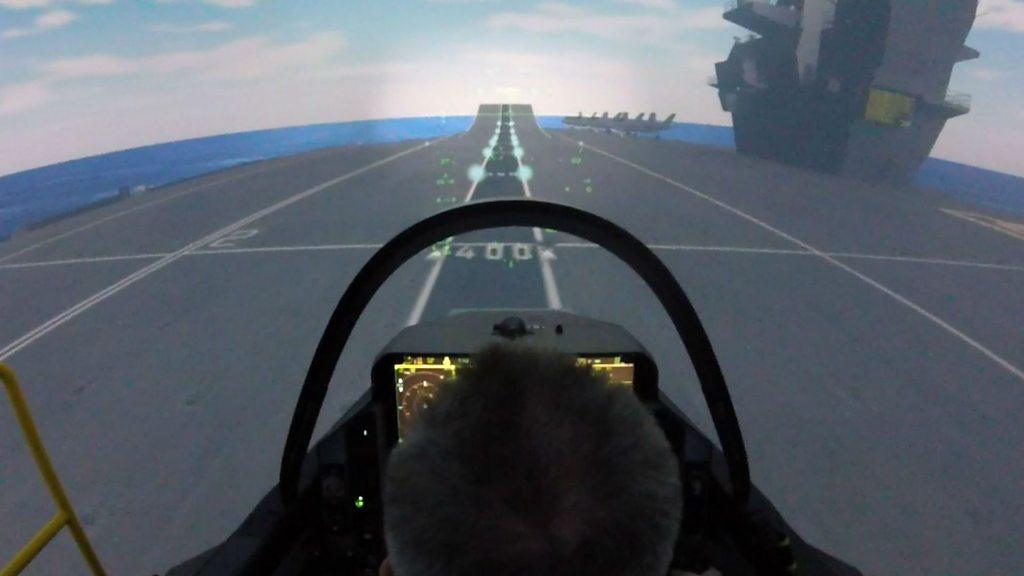
- Published27 June 2017
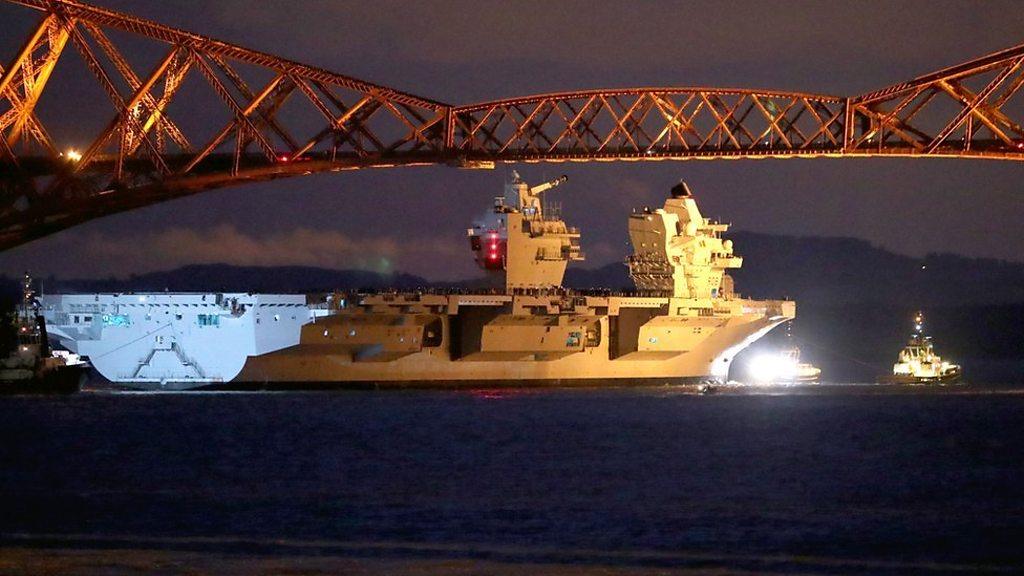
- Published24 July 2017
